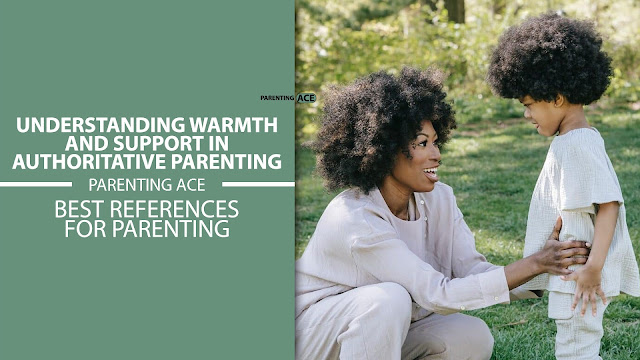Understanding the Role of Warmth and Support in Authoritative Parenting
Welcome to our latest blog post, where we explore the pivotal role of warmth and support in authoritative parenting. As parents, cultivating a nurturing environment marked by affection, empathy, and encouragement is crucial for fostering healthy child development. Join us as we delve into how the balance of warmth and structure shapes the emotional well-being, social competence, and overall success of our children. Through this exploration, we aim to shed light on the profound impact of a supportive parenting approach and provide insights into nurturing resilient, confident, and empowered individuals.
 |
| Understanding Warmth and Support in Authoritative Parenting |
Parenting is a delicate balance between nurturing independence and providing guidance. Among the various parenting styles identified by psychologists, authoritative parenting stands out for its blend of warmth and support with clear expectations and boundaries. In this article, we delve into the significance of warmth and support in authoritative parenting, exploring how these characteristics contribute to positive child development.
Warmth and Support in Authoritative Parenting
Authoritative parents are characterized by their warmth and supportiveness towards their children. Unlike authoritarian parents who may be rigid and unyielding, authoritative parents create a nurturing environment where children feel valued, respected, and understood. This warmth fosters a strong emotional bond between parent and child, laying the foundation for healthy communication and trust.
Support in authoritative parenting goes beyond mere affection; it encompasses emotional support, encouragement, and guidance. Authoritative parents provide a safe space for their children to express themselves, validate their emotions, and offer constructive feedback. This support empowers children to explore their interests, pursue goals, and navigate challenges with confidence.
The Impact on Child Development
The warmth and support offered by authoritative parents have a profound impact on child development. Research has consistently shown that children raised in authoritative households exhibit higher levels of self-esteem, emotional intelligence, and social competence compared to those raised under authoritarian or permissive parenting styles.
By experiencing warmth and support from their parents, children develop a secure attachment style, which forms the basis for healthy relationships later in life. They learn to regulate their emotions, solve problems effectively, and communicate assertively, skills that are essential for success in both personal and professional domains.
Moreover, the supportive environment created by authoritative parents encourages children to take initiative, explore their interests, and develop a sense of autonomy. Unlike authoritarian parents who dictate every aspect of their children's lives or permissive parents who offer little guidance, authoritative parents strike a balance between autonomy and accountability, empowering children to make responsible decisions while providing guidance when needed.
Challenges and Considerations
While warmth and support are integral to authoritative parenting, it's essential to recognize that parenting is not without its challenges. Finding the right balance between warmth and structure can be demanding, especially in today's fast-paced society where parents juggle multiple responsibilities.
Additionally, authoritative parenting may not be suitable for every cultural or familial context. What works well in one family may not necessarily be effective in another. It's crucial for parents to adapt their parenting approach to align with their child's temperament, cultural background, and individual needs.
In conclusion, warmth and support are cornerstones of authoritative parenting, contributing to positive child outcomes and healthy family dynamics. By fostering a nurturing environment grounded in love, respect, and encouragement, authoritative parents empower their children to thrive emotionally, socially, and academically. As we continue to explore the complexities of parenting, let us embrace the transformative power of warmth and support in shaping the next generation.



Comments
Post a Comment